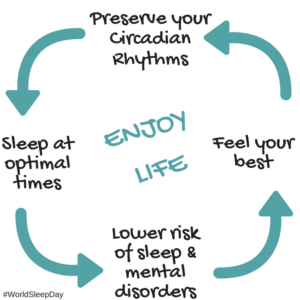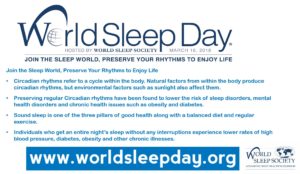Globe and Mail: Good luck finding sleep care if you live in a smaller community
I came across this article a while back in The Globe And Mail, titled “Good luck finding sleep care if you live in a smaller community” -Sep 9, 2015. I would like to comment about this very important fact which still rings true today.
I quite agree with the statements expressed in this article by the physicians who were interviewed regarding this matter. There is a shortage of sleep testing facilities and trained sleep professionals in Western Canada.
As a credentialed paramedical sleep professional who has spent 20 years in a clinical sleep setting as a Registered Polysomnographic and Electroencephalographic Technologist, I know all too well about the scarcity of sleep care resources in small communities, especially out west.
In my role as Community Sleep Coach, I have been dedicating time as a sleep advocate raising sleep disorder awareness across Canada in hopes of enlightening the public on abnormal sleep conditions and their eventual health consequences as well as what resources are available.
Sleep disorders are a common problem and it is true that many folks will not receive any kind of sleep care, assessment or education simply because of geography. It is very unfortunate that our access to sleep services is rather limited in this part of the country. Untreated sleep disorders cost billions of dollars each year and it should be in Canada’s best interest to ensure that sleep care is accessible.
Community Sleep Coach was founded to offer an alternative sleep resource for areas lacking sleep labs, sleep specialists and in parts where waitlists are too long. We provide sleep education and a preliminary assessment which can steer people in the right direction while on the path to formal diagnosis by a specialist and ultimate treatment. We offer in-person, phone and corporate sleep consultations across Canada. Mobile sleep consult services can also be booked directly by General Practitioners in their respective communities.
This type of resource is currently not covered by healthcare or by extended health benefits but we hope that will change in the foreseeable future. This is a type of preventative care which will ultimately save dollars and even lives in the long run. Untreated sleep apnea for instance, can lead to expensive hospital stays when folks suffer a heart attack or stroke as a result.
We need to make sleep care services available to all. Quality sleep is paramount to optimal health and well-being.
Please contact your health insurance companies and MLA’s to emphasize the need for sleep resource improvements and coverage.
 Sleep problems can affect anyone regardless of age, gender or ethnicity. It is estimated that about 45% of the global population experiences sleep issues, but less than a third of those affected will actually try to obtain help from a sleep professional.
Sleep problems can affect anyone regardless of age, gender or ethnicity. It is estimated that about 45% of the global population experiences sleep issues, but less than a third of those affected will actually try to obtain help from a sleep professional.









